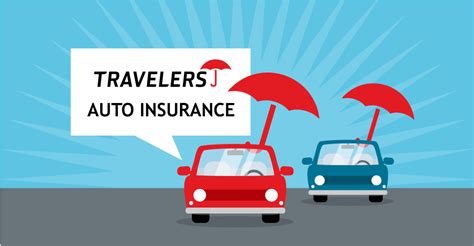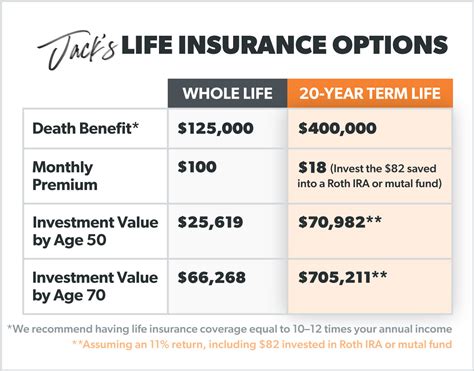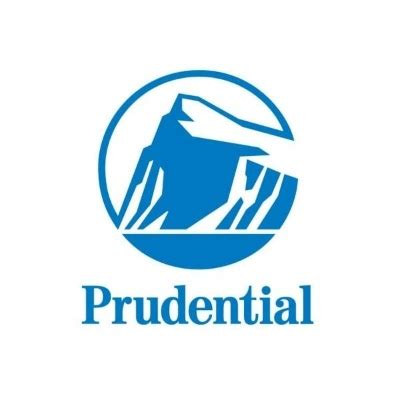Liability Insurances
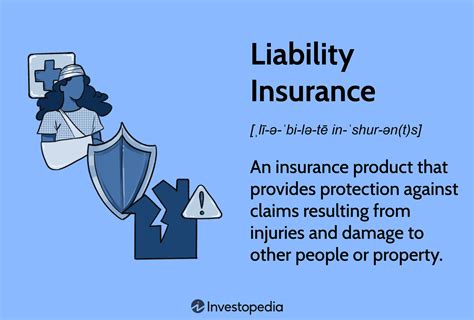
Liability insurance is a critical aspect of financial protection and risk management for individuals and businesses alike. In a world filled with potential liabilities and legal responsibilities, having the right insurance coverage can make all the difference. This article delves into the world of liability insurance, exploring its significance, types, and how it provides peace of mind and financial security.
Understanding Liability Insurance

Liability insurance, at its core, is a type of insurance coverage that protects individuals and entities from financial losses arising from claims of negligence or wrongdoing. It serves as a safeguard against potential legal liabilities that can arise from various situations, ensuring that the insured party is not left bearing the full financial burden of an accident or incident.
The concept of liability insurance is deeply rooted in the principle of risk management. By transferring the financial risk to an insurance provider, individuals and businesses can focus on their core operations or personal lives without the constant worry of potential legal and financial consequences. This type of insurance acts as a safety net, providing coverage for a wide range of scenarios that could lead to legal action and substantial monetary claims.
Types of Liability Insurance
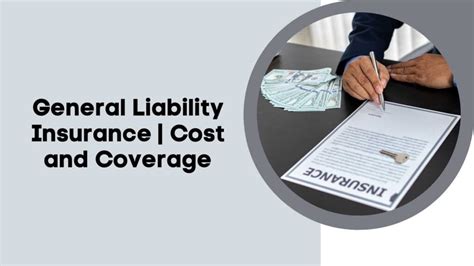
Liability insurance is not a one-size-fits-all solution; it comes in various forms, each tailored to specific needs and scenarios. Understanding the different types is crucial to ensuring adequate coverage.
General Liability Insurance
General liability insurance is a broad form of coverage that safeguards against common liabilities faced by businesses and individuals. It provides protection for bodily injury, property damage, and personal and advertising injury claims. This type of insurance is especially crucial for businesses that interact with the public, as it covers a wide range of potential accidents or incidents that could occur on their premises or as a result of their operations.
For instance, if a customer slips and falls on a wet floor in a retail store, general liability insurance would cover the resulting medical expenses and any legal fees associated with the claim. It acts as a comprehensive safeguard, ensuring that the business is not held personally responsible for such accidents.
Professional Liability Insurance (E&O Insurance)
Professional liability insurance, also known as Errors and Omissions (E&O) insurance, is designed specifically for professionals such as consultants, accountants, lawyers, and healthcare providers. This type of insurance protects against claims of negligence, errors, or omissions in the delivery of professional services. It is particularly important for professionals whose work directly impacts their clients’ well-being or financial situation.
Take, for example, a software consulting firm. If a client suffers financial losses due to a bug in the software developed by the firm, professional liability insurance would cover the resulting damages and legal fees, providing a financial safety net for the consulting firm.
Product Liability Insurance
Product liability insurance is essential for businesses that manufacture, distribute, or sell tangible products. It provides coverage for bodily injury or property damage claims resulting from a defect or malfunction in the product. In an era where product recalls and lawsuits are not uncommon, this type of insurance is a crucial safeguard for manufacturers and retailers.
Imagine a manufacturing company that produces kitchen appliances. If one of their appliances catches fire due to a manufacturing defect, product liability insurance would step in to cover the resulting property damage, bodily injury claims, and any legal fees associated with the incident.
Other Specialized Liability Coverages
Beyond the aforementioned types, there are numerous specialized liability insurance policies tailored to specific industries and scenarios. These include cyber liability insurance to protect against data breaches and cyber attacks, directors and officers (D&O) liability insurance to protect corporate leadership, and even liability insurance for specific events or activities, such as wedding liability insurance or sports event liability insurance.
Benefits and Peace of Mind
The primary benefit of liability insurance is, undoubtedly, the peace of mind it provides. By obtaining adequate liability coverage, individuals and businesses can rest assured that they are financially protected against potential liabilities. This sense of security allows them to focus on their core objectives and personal goals without the constant worry of unforeseen legal and financial burdens.
Moreover, liability insurance plays a crucial role in maintaining financial stability. In the event of a claim, the insurance coverage ensures that the insured party is not left bankrupt or in significant financial distress. It provides the necessary funds to cover legal expenses, settlements, or judgments, preventing a single incident from derailing an individual's or business's financial future.
Additionally, liability insurance is often a requirement for certain industries and professions. Many clients, especially those in high-risk fields, will not engage with a business or professional unless they have the appropriate liability coverage in place. This requirement ensures that all parties involved are protected and that the industry operates with a certain level of financial security.
Real-World Examples and Performance Analysis
To illustrate the significance of liability insurance, let’s explore a few real-world scenarios and analyze how it has impacted individuals and businesses.
Small Business Success Story
John, a small business owner, had always prioritized general liability insurance for his retail store. One day, a customer tripped over a display and suffered a minor injury. Without liability insurance, John could have faced significant financial repercussions, including medical bills and potential legal fees. However, with his insurance coverage, he was able to swiftly resolve the issue, covering the customer’s medical expenses and avoiding any legal action. This experience not only highlighted the importance of liability insurance but also solidified John’s belief in its value, allowing him to continue running his business with confidence.
Professional Liability Claims
Sarah, a renowned architect, had invested in professional liability insurance to protect her practice. During a project, a client alleged that Sarah’s design had led to structural issues in their newly constructed building. Without professional liability insurance, Sarah could have faced significant financial penalties and damage to her reputation. However, with her insurance coverage, she was able to navigate the legal process with minimal financial impact, allowing her to continue her architectural practice without disruption.
Product Recall and Insurance Coverage
Imagine a large manufacturing company that discovered a defect in one of its product lines. Without product liability insurance, the financial impact of a potential recall could be devastating. However, with the right insurance coverage, the company was able to manage the recall process effectively, covering the costs of replacing or repairing the defective products and minimizing the financial strain on the business.
Evidence-Based Future Implications

As the world continues to evolve, the landscape of liability insurance is also changing. Emerging technologies, such as autonomous vehicles and artificial intelligence, present new liability challenges. Insurers are adapting to these changes, developing innovative coverage options to address the unique risks associated with these technologies.
Furthermore, the increasing awareness of environmental issues has led to a rise in environmental liability insurance. This type of coverage protects businesses and individuals from the financial consequences of environmental damage or pollution claims. As sustainability becomes a priority for many industries, environmental liability insurance is expected to play a more prominent role in risk management strategies.
Conclusion
Liability insurance is an indispensable tool for managing financial risks and ensuring peace of mind. By understanding the different types of liability insurance and tailoring coverage to specific needs, individuals and businesses can navigate the complex world of potential liabilities with confidence. Whether it’s protecting a small business, safeguarding professional practices, or ensuring product safety, liability insurance serves as a critical component of comprehensive risk management.
As we move forward into an increasingly complex and interconnected world, the importance of liability insurance will only grow. Staying informed and proactive about insurance coverage is key to maintaining financial stability and peace of mind in the face of unforeseen liabilities.
What is the difference between liability insurance and other types of insurance coverage?
+Liability insurance differs from other types of insurance in that it focuses on protecting the insured against financial losses arising from legal liabilities. Other insurance types, such as property or health insurance, primarily cover specific assets or individuals, whereas liability insurance is about safeguarding against potential legal and financial consequences of negligence or wrongdoing.
Is liability insurance a legal requirement for all businesses and individuals?
+While liability insurance is not a universal legal requirement, certain industries and professions may have specific regulations or industry standards that mandate certain types of liability coverage. For example, medical professionals may be required to carry professional liability insurance, and businesses operating in certain high-risk industries may need general liability insurance to protect against potential liabilities.
How do I choose the right liability insurance coverage for my needs?
+Choosing the right liability insurance coverage involves assessing your specific risks and needs. Consider the nature of your business or personal activities, the potential liabilities associated with them, and the level of protection you require. Consulting with an insurance professional can help you navigate the various options and tailor a coverage plan that suits your unique circumstances.
